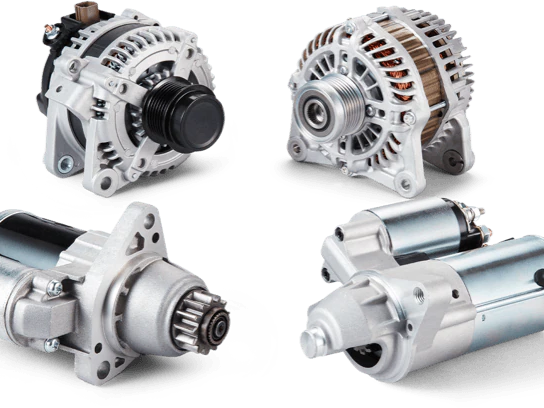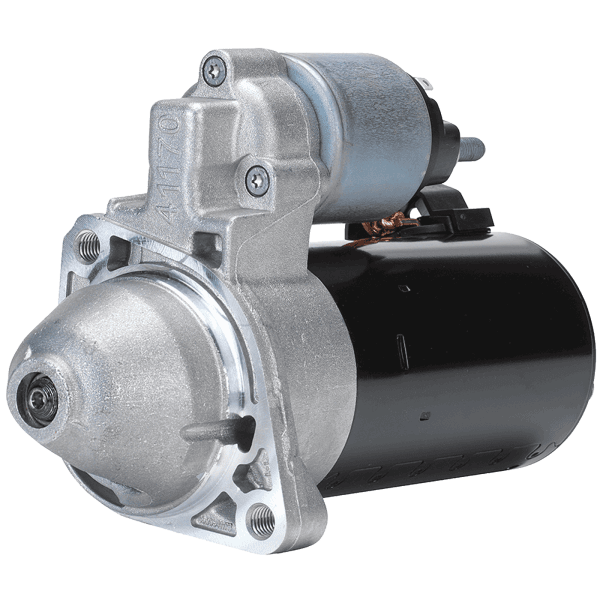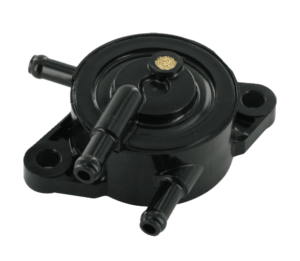About Car starter
A car starter is a device that is responsible for starting the engine of a vehicle. It is an electrical motor that is connected to the battery and is responsible for turning the flywheel, which in turn starts the engine. Without a functioning starter, a car will not be able to start.
There are a few common problems that can occur with car starters. One of the most common is a dead battery. If the battery is dead, the starter will not be able to turn the flywheel and the engine will not start. Another common problem is a faulty starter motor. If the starter motor is not working properly, it will not be able to turn the flywheel and the engine will not start.

In addition to these common problems, there are a few other issues that can occur with car starters. One of these is a problem with the starter solenoid. The starter solenoid is responsible for connecting the battery to the starter motor and if it is not working properly, the starter will not be able to turn the flywheel. Another problem that can occur is a problem with the flywheel. If the flywheel is damaged or worn out, the starter will not be able to turn it and the engine will not start.
If you suspect that you have a problem with your car starter, it is important to have it checked out by a professional. A qualified mechanic will be able to diagnose the problem and make the necessary repairs to get your car running again. In the meantime, if your car won’t start, you can jumpstart the car, which is a temporary solution to the problem.
In summary, car starter is an essential component of your car that helps to start the engine. Common problems with car starters include dead battery, faulty starter motor, starter solenoid problem and flywheel issues. If you suspect a problem with your car starter, it is important to have it checked out by a professional mechanic to avoid further damage and to get your car running again.
Another important aspect of car starters is the starter relay, which is responsible for controlling the electrical power that is sent to the starter motor. If the starter relay is malfunctioning, it can cause the starter motor to fail or not work properly. Additionally, a worn out or loose starter drive gear can also cause problems with the starter motor. This gear is responsible for engaging the flywheel and if it is worn out or not properly aligned, it can cause the starter motor to struggle to turn the flywheel and start the engine.
It is also important to note that car starters can be affected by the overall condition of the vehicle. For example, if the engine is dirty or clogged with debris, this can impede the starter motor’s ability to turn the flywheel and start the engine. Therefore, regular maintenance of the vehicle and its components is essential to ensure the proper functioning of the car starter.
In terms of maintenance, it is important to have the battery and starter motor checked regularly, as well as ensuring that all the connections are clean and tight. This will help to prevent problems from occurring and will also help to prolong the life of the starter motor.
In conclusion, the car starter is a crucial component of a vehicle’s starting system. It is responsible for turning the flywheel and starting the engine. Common problems with car starters include dead battery, faulty starter motor, starter solenoid problem, flywheel issues, starter relay malfunction and worn out or loose starter drive gear. Regular maintenance and professional diagnosis can help prevent and fix problems with car starters, keeping your vehicle running smoothly.
There are a few ways to check if a car starter is functioning properly. Here are a few steps you can take to diagnose a potential issue:
- Check the battery: Make sure the battery is fully charged and has a good connection. A weak or dead battery can prevent the starter motor from turning the flywheel and starting the engine.
- Listen for the starter motor: With the key in the ignition, turn the engine over. You should hear a clicking noise as the starter motor engages. If you don’t hear any noise or if the noise is very faint, this could indicate a problem with the starter motor.
- Check the starter motor’s connections: Make sure all the connections to the starter motor are clean and tight. Loose or corroded connections can prevent the starter motor from functioning properly.
- Check the starter solenoid: The starter solenoid is responsible for connecting the battery to the starter motor. You can test the solenoid by having someone turn the key while you listen for a clicking noise coming from the solenoid. If you don’t hear a click, the solenoid may be faulty.
- Check the flywheel: If the starter motor is turning but the engine isn’t starting, it could be a problem with the flywheel. A qualified mechanic can check the flywheel for any damage or wear.
It’s important to note that if you suspect a problem with your car starter, it is best to have it checked by a professional mechanic. They will be able to diagnose the problem and make the necessary repairs to get your car running again.



